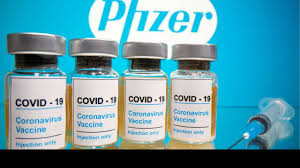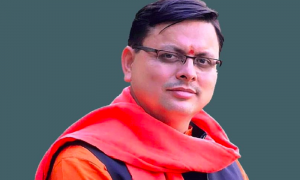STORY HIGHLIGHTS
The joint statement read that the analysis of the Sputnik V vaccine efficacy at the final control point was carried out on the basis of 78 confirmed cases identified in the placebo group (62 cases) and in the vaccine group (16 cases).
The Gamaleya research centre expects the efficacy rate of its vaccine against the coronavirus, Sputnik V, to further increase, the centre’s deputy director of science, Denis Logunov, said Monday.
According to the institute, Sputnik V vaccine against COVID-19 is likely to provide up to two years of immunity from COVID-19, compared to the four or five months immunity that may be achieved by using the vaccine produced by Pfizer and BioNTech.
“Concerning our vaccine and the platform it was created on, the Ebola vaccine, there is experimental evidence that using this platform, using similar preparation methods, provides protection for two years at least, maybe more. It is difficult to say how long the Pfizer vaccine will give immunity, but based on the general findings from such vaccines, one must think that the period of protection will be no more than four to five months, although this requires experimental data,” Alexander Gintsburg, the head of Russia’s Gamaleya research institute, said.
According to Logunov, the overall efficacy rate of 91.4 per cent was calculated for people who received both doses of vaccine. There are 21 days between the two injections, so the calculations took into account the cases starting from 21 days and on.
“Obviously, it showed high efficiency, but since we were counting from 21 days onward and including the cases, we also hope that if we increase the vaccination period to 28, 35, 42 days, the efficacy numbers may grow,” Logunov told a briefing.
“The data analysis at the third and final control point of the Sputnik V vaccine clinical trials confirmed its efficacy of the of over 90 per cent. Clinical trials have proven this in the three consecutive statistically important points described in the trial protocol,” remarked RDIF Chief Executive Officer Kirill Dmitriev.
The joint statement read that the analysis of the Sputnik V vaccine efficacy at the final control point was carried out on the basis of 78 confirmed cases identified in the placebo group (62 cases) and in the vaccine group (16 cases).
“The ratio of the placebo group to the vaccinated group is 1 to 3,” said the joint statement.
As of Monday, over 26,000 volunteers were vaccinated at 29 medical centres in Russia, as part of the ongoing clinical trials. Currently, Phase 3 trials are ongoing in countries like Belarus, the United Arab Emirates (UAE), and Venezuela, while Phase 2/3 trials are being conducted in India.
The statement mentioned that no unexpected adverse events were identified as part of the research as of now, although some of those vaccinated had short-term minor adverse events such as pain at the injection point and flu-like symptoms, including fever, weakness, fatigue, and headache.
“The new data on the efficacy of the Gamaleya Center vaccine is extremely encouraging. Today it has become obvious to everyone that the end of the pandemic is possible only after the mass vaccination of the entire global population. In this regard, ensuring equal access to effective and safe vaccines, including the Sputnik V, for people in every country should be the goal of foreign regulatory bodies and international organizations,” said Mikhail Murashko, Minister of Health of the Russian Federation.
Russia became the first country to register the world`s first COVID-19 vaccine on August 11, Sputnik V, named after Russia`s first satellite.





































